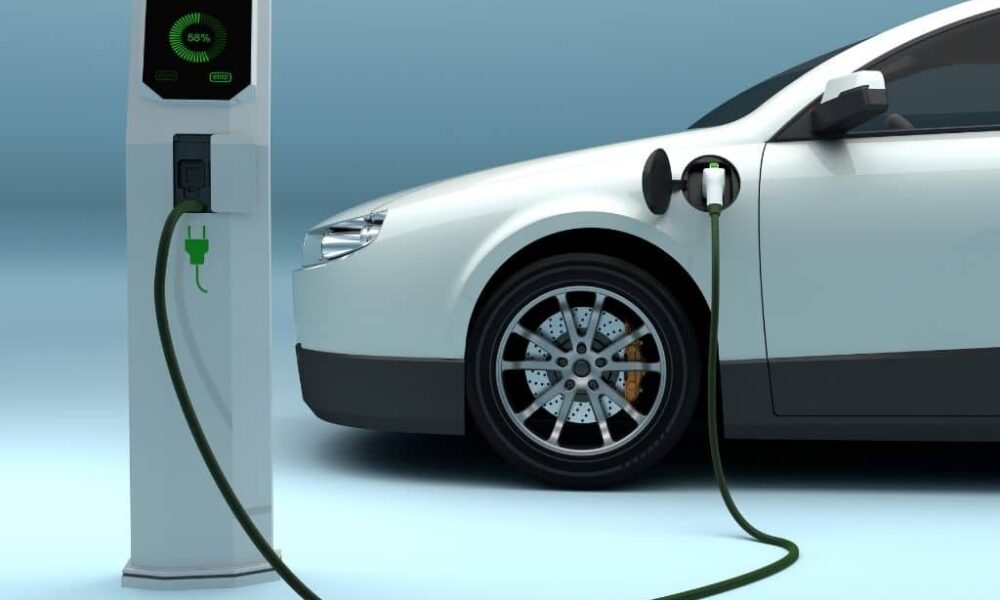The world is changing with Electric Vehicles EV Tech, and the way we travel is changing with it. For over a century, gas-powered cars have dominated the roads, but now the end is nigh for these fossil fuel-guzzling machines. As climate change becomes an increasingly pressing concern, the need for sustainable and eco-friendly transportation has become more urgent. Electric vehicles (EVs) offer a viable solution to this problem, and they are rapidly gaining popularity around the world. In this article, we will explore the reasons behind the rise of EVs, their pros and cons, and what the future holds for transportation.

Points to remember:
- Gas-powered cars are a major contributor to air pollution and climate change.
- Electric vehicles offer a sustainable and eco-friendly alternative to fossil fuel-powered cars.
- The cost of EVs is coming down, and they are becoming more accessible to the general public.
- Advances in battery technology are increasing the range and efficiency of EVs.
- The infrastructure to support EVs is rapidly expanding around the world.
Most asked FAQ’s:
What are electric vehicles?
Electric vehicles are vehicles that run on electric motors powered by batteries, rather than internal combustion engines that burn fossil fuels like gasoline or diesel.
Are electric vehicles more expensive than gas-powered cars?
Electric vehicles can be more expensive upfront, but the total cost of ownership over the lifespan of the vehicle is often lower due to lower fuel and maintenance costs.
How far can electric vehicles travel on a single charge?
The range of an electric vehicle depends on the battery capacity and driving conditions. Many EVs can travel 200-300 miles on a single charge.
How long does it take to charge an electric vehicle?
Charging time varies depending on the battery capacity and charging method. Fast chargers can charge an EV in as little as 30 minutes, while slower chargers may take several hours.
Is the infrastructure for electric vehicles in place?
The infrastructure for electric vehicles is rapidly expanding, with more charging stations being installed every day. However, it may still be less convenient to find charging stations in certain areas compared to gas stations.
Are electric vehicles as safe as gas-powered cars?
Electric vehicles are generally considered to be as safe as gas-powered cars, and in some cases, they may be even safer due to their lower center of gravity and superior handling.

Pros of electric vehicles:
- Eco-friendly: Electric vehicles produce zero emissions and help reduce air pollution, which is a major contributor to climate change.
- Lower fuel costs: Electric vehicles are cheaper to fuel than gas-powered cars, as electricity is generally less expensive than gasoline.
- Lower maintenance costs: Electric vehicles have fewer moving parts than gas-powered cars, which means they require less maintenance.
- Quiet and smooth: Electric motors produce less noise and vibration than internal combustion engines, making for a quieter and smoother driving experience.
- Tax incentives: Many governments offer tax incentives and rebates to encourage the adoption of electric vehicles, which can help offset the upfront cost.
Cons of electric vehicles:
- Range anxiety: The limited range of some electric vehicles can be a concern for drivers, as it may require more planning and stops to recharge during long trips.
- Charging infrastructure: While the infrastructure for electric vehicles is expanding, it may still be less convenient to find charging stations compared to gas stations, especially in more remote areas.
- Charging time: Electric vehicles may take longer to charge than filling up a gas tank, which can be inconvenient for drivers on the go.
- Upfront cost: Electric vehicles can be more expensive to purchase upfront than gas-powered cars, although this is starting to change as technology improves and production costs decrease.
- Battery life and disposal: The batteries in electric vehicles have a limited lifespan and can be expensive to replace. Additionally, the disposal of used batteries can be an environmental concern.

Time for Hope
While electric vehicles still face some challenges, they offer a promising solution to the environmental and economic issues caused by gas-powered cars. With advances in battery technology and infrastructure, the future looks bright for electric vehicles. As more and more people adopt EVs, we can look forward to cleaner air, lower fuel costs, and a more sustainable transportation system.












No Comment! Be the first one.